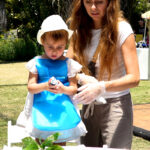Miami Super Bowl Host Committee Reef
The Miami Super Bowl Host Committee (MSBHC) today announced its coral reef restoration project, unheard of at any Super Bowl in the last 54 years, Miami Super Bowl Host Committee Reef. This exceptional event is in alliance with FORCE BLUE and NFL Green alongside collaborating partners as part of the Committee’s recently launched Ocean to Everglades initiative.
The Miami Super Bowl Host Committee Reef restoration project featured 100 staghorn corals out-planted at Rainbow Reef offshore of Key Biscayne on the Middle Reef on Thursday, June 13 in honor of the NFL’s 100th season.
“Major events such as the Super Bowl gather tremendous support and attention around which top influencers, nonprofit organizations, corporations and community members can unite to take action to aid in the conservation of our oceans and everglades,” said Rodney Barreto, chairman, MSBHC.
The Ocean to Everglades (O2E) Initiative is the Super Bowl LIV environmental campaign in partnership with NFL Green, Ocean Conservancy, The Everglades Foundation and Lonely Whale. Under the leadership of committee chair Eric Eikenberg, the CEO of The Everglades Foundation, O2E will focus on solutions to the critical issues facing the health of the ocean and the Everglades.
“The Miami Super Bowl Host Committee Reef project is one of the many events that will leverage the Super Bowl platform to engage the community in the environmental efforts that will leave a lasting sustainable legacy beyond Super Bowl LIV,” said Mike Zimmer, president, MSBHC.
With the support of NFL Sponsor, Verizon and Florida Department of Environmental Protection alongside O2E initiative partner ABSOLUT VODKA®, the project took place over two days with a team of five FORCE BLUE divers and scientists from the University of Miami Rosenstiel School of Marine and Atmospheric Science, Rescue a Reef program. To start off the event, The Phillip and Patricia Frost Museum of Science hosted FORCE BLUE divers as well as media for a briefing of Thursday’s activities along with a chance to see and learn about the proper way to out-plant corals without harming the existing reef structure.
“FORCE BLUE is proud to be playing part in the Miami Super Bowl Host Committee Reef Restoration Project” said FORCE BLUE Executive Director Jim Ritterhoff. “It is precisely the sort of mission we need to bring attention, not only to the plight of the entire Florida Coral Reef Tract, but to the struggles so many of our returning combat veterans face when their service ends.”
FORCE BLUE and the UDT/SEAL Association spearheaded the diving component for the out-planting of the corals. FORCE BLUE is a group made up of special operations veterans from all branches of service who are experienced in combat diving and want to do good for our oceans with support from marine scientists, conservationists and media.
The corals were sourced from the Rosenstiel School’s coral nursery located offshore of Key Biscayne, Florida. Once the corals have grown and are ready for out-planting, small colonies are collected from the nursery while leaving others to continue growing for future out-planting. Colonies are then carefully transported to the restoration site via boat.
Scientists from the Rosenstiel School’s Rescue a Reef program with FDEP oversight, choose restoration sites like Rainbow Reef based on specific characteristics such as water quality, absence of predators, and the current or historical presence of existing staghorn colonies. The site of the Super Bowl Reef out-planting project will be monitored upon intervals and maintained over the next eight months to later be unveiled to the public during Super Bowl Week in Miami from January 27 to February 2, 2020.
Coral reefs protect Miami’s coasts by reducing the strength of the waves coming toward our shores from storms and hurricanes. According to the Florida Department of Environmental Protection, it is estimated that annually over 5,600 people, $560 million worth of building infrastructure, and $320 million worth of economic activity in Florida are protected from storm related flooding by reefs. Reefs serve as a source of food and shelter and provide critical habitat for numerous species.






